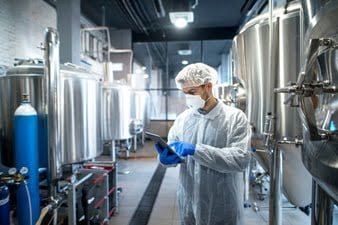Careers and job prospects in B. Sc Polymer Chemistry
by Abdul Aziz Mondal Job & Career Published on: 21 May 2021 Last Updated on: 27 December 2024

B. Sc Polymer Chemistry degree focuses on all the aspects of producing polymers that could be both natural as well as synthetic.
Its curriculum aims to illuminate almost every part of polymer chemistry dealing with the polymers, plastics, and adhesives their organic synthesis, composition, mechanical, and physical properties. Macromolecular chemistry is another name for this field of research.
Biological treatment and identifying the composition of chemical chains are at the heart of this subsector’s work. B. Sc polymer chemistry sets a solid base for many job opportunities in the fields of research and development, petrochemical industries, fiber manufacturing industries, packaging facilities, plastic manufacturing and recycling units, chemical labs, scientific research, environmental conservation sectors, biotechnology, and so on.
Look at some of the exciting career opportunities available to you after you complete your B.Sc. Polymer Chemistry degree:
1. Polymer chemist:
These chemists work in laboratories and perform analysis on environmental issues, as well as qualitative and quantitative tests on chemical compounds to improve the reliability of goods and generate new ones. They are also in charge of a range of specialties for performing investigations on natural and synthetic materials by using a variety of techniques.
2. Technical writer:
The professionals hired for such roles prepare, analyze, revise, and document technical records by incorporating different software and systems engineering techniques, system management, monitoring, and usage reports, among others. They track new and evolving product features for reviewing technological and product information from a variety of sources.
3. Synthetic polymer chemists:
They are in charge of identifying, directing, and driving emerging product development programs involving polymer manufacturing, development, and configuration building techniques. They are interested in big, complicated molecules. They understand the process of how smaller building blocks interact for building polymers by exploiting their molecular composition to produce complex essential features in the final product.
4. Lecturer:
Some graduates are interested in pursuing a job as a lecturer. They might end up pursuing a higher education program like a master’s or Ph.D. program to enhance their expertise and potentially contribute to case studies, head scientific research projects, and initiate a career as a university lecturer.
5. Clinical Research Specialist:
A clinical research specialist’s job description includes planning, strategizing, organizing, executing, and coordinating numerous clinical research programs. The ventures could include the development of new synthetic polymers with fewer toxic combinations, as well as their chemical synthesis, quality management, and manufacturing.
6. Lab technician:

Samples are collected, classified, and examined by lab technicians. Their basic job responsibility is to maintain the lab equipment for carrying out experimental tests by following defined procedures. Experiments under controlled conditions are used to confirm or refute different theories using advanced researcher formulates.
An undergraduate degree in Polymer Chemistry will offer students in-depth professional knowledge and expertise to pursue a full-fledged career in this industry.
Further progress can be made by gaining a greater understanding of the construction of these chemical chains and their properties by systematic experiment and observation.
New synthetic polymers can be created, and existing structures can be improved. As a result, if you choose to work within this sector, you would be at the forefront of scientific discoveries.



































































































